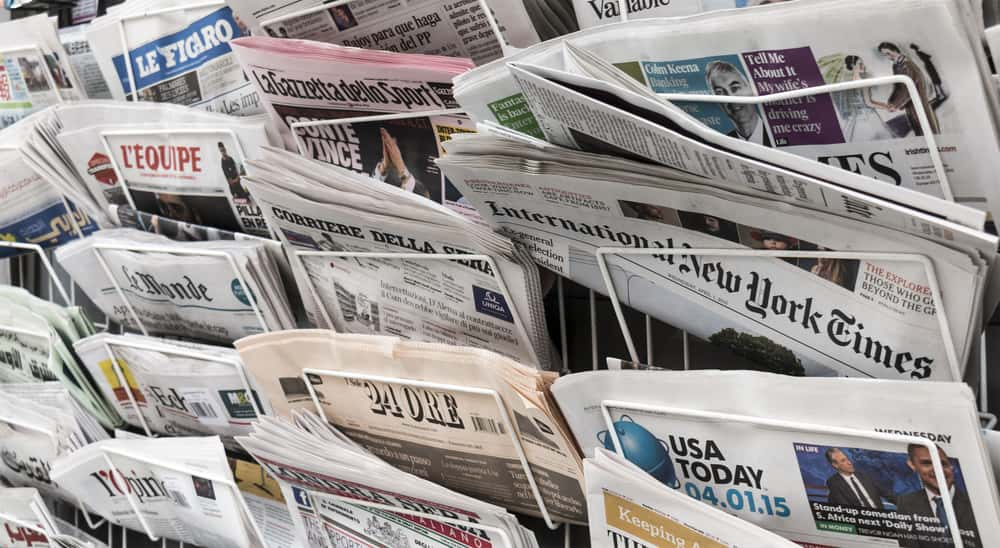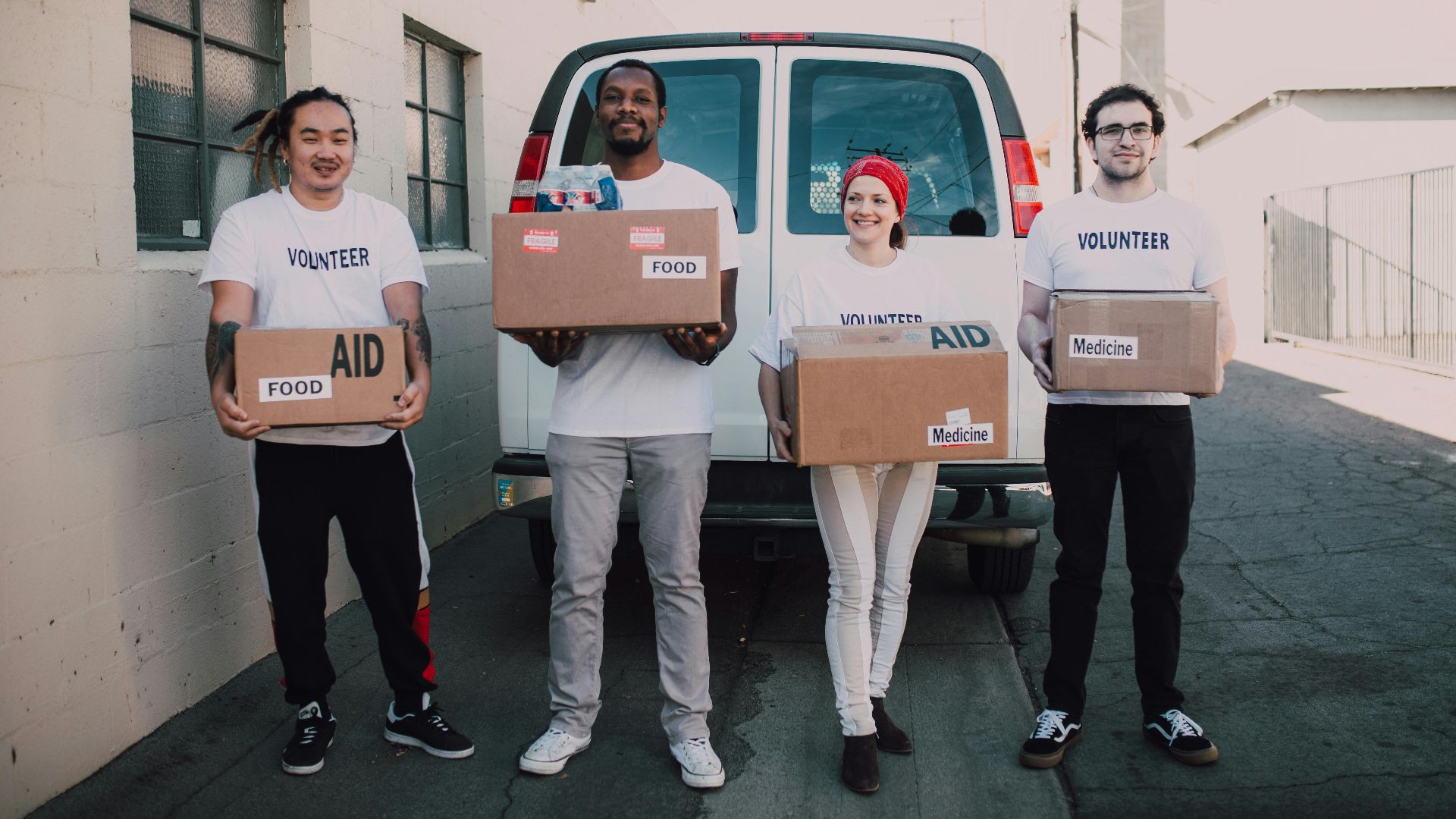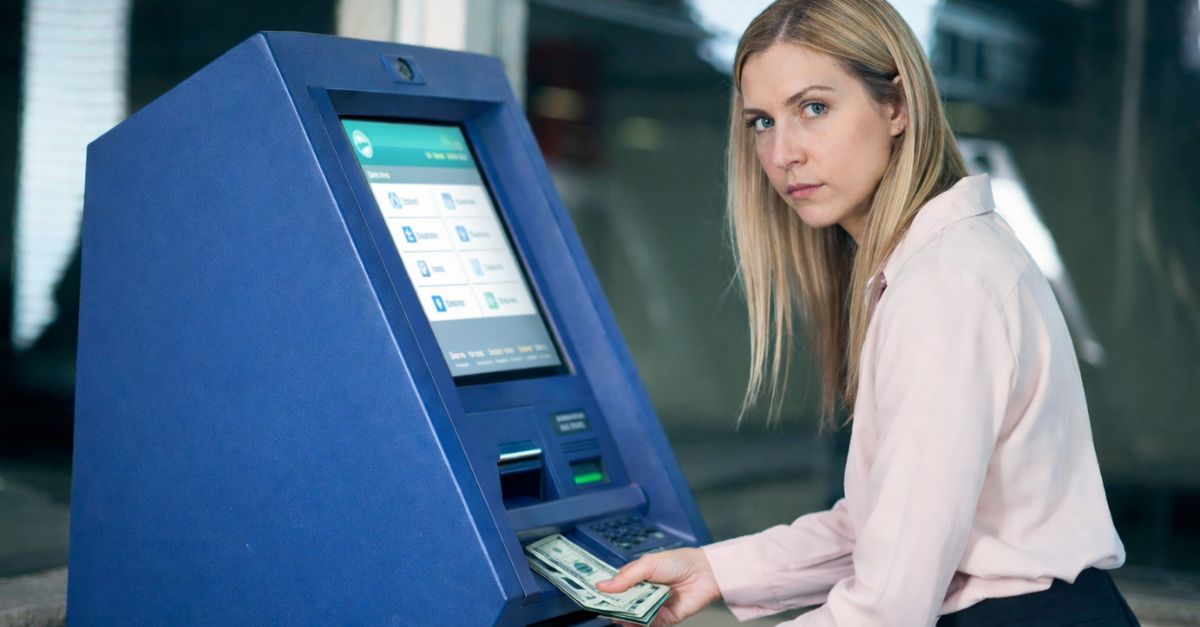Are We Headed For A Recession?
The US economy just had its worst quarter since 2022 as significant policy changes worry both consumers and business.
The Federal Reserve Bank of Atlanta is currently forecasting a “sharp decline” of 2.7% for US GDP in the first quarter of 2025—marking the worst quarter since the Covid-era in mid-2020.
So, what exactly does this mean for the US economy? Should we be worried about a recession?

The Forecast Says…
Honestly, the forecasters are split. In early April, JP Morgan Research forecasted a 60% chance of a recession occurring in 2025, citing taxes and tariffs as the main culprit. But not everyone agrees.
 THICHA SATAPITANON, Shutterstock
THICHA SATAPITANON, Shutterstock
Give It Time
According to a recent study by the National Association of Business Economics, only 4 out of 10 forecasters figure more than 50% odds of a downturn. Their argument is that we haven’t given the tariffs enough time to take full effect, and basically, the hard times are still to come.
But the opposing forecasters used a different method—and came up with a completely different answer.
Consumer Behavior
Some forecasters are making predictions about the future health of the economy using consumer behavior as opposed to sales and job growth—and it paints a much prettier picture.
Not Too Shabby
According to USA Today, in March 2025, employers added a whopping 228,000 jobs, and retail sales rose 1.4% more than expected—two readings that usually reflect an economy that actually runs little risk of running aground.
But this, too, can be argued.
Start The Car!
Economists believe it’s possible that the higher sales figure was likely higher due to consumers “frontloading” purchases—meaning they were buying cars and other goods quickly before the tariffs took effect. If this is true, we will see weaker sales in the coming months.
Still Lots Of Debt…And Lots Of Jobs
Ryan Sweet, chief US economist of Oxford Economics claims that “The consumer is still in pretty good shape,” going on to note that household debt has risen but remains “historically low” as a share of income.
According to Sweet, wage growth is still outpacing inflation, and job gains have remained sturdy—and the US may just “narrowly avoid a tailspin”.
While this may be good news, economists are still warning consumers about something very important.
Job Losses Ahead
Whether or not there is a recession heading our way this year is hard to say. Things change so quickly. While consumer sales may be doing okay, job loss is a looming danger. According to USA Today, “first-time applications for unemployment insurance rose by 6,000 the week ending April 19”.
It is possible that as employers feel the burn from the tariffs, they may have to let more people go. But that’s not the worst of it.
Crickets
USA Today also reported that job ads on Indeed, the leading employment board, have been “roughly flat” since just prior to the election, and “barely budged” in the first half of April. It’s possible that some employers are nervous to take on more employees right now.
All in all, economists want consumers to be prepared.
Plan, Don’t Panic
Overall, American economists are estimating the likelihood of a recession by the end of 2025 to be around 40-60%, with others going as high as 80%.
So, what now? You plan.
Reduce Your Spending
This is probably an obvious tip, but in all seriousness, you should be reducing your spending while you still have money in the bank—not when you have nothing left. So even if you’re in good shape now, reducing your spending now will help you be more prepared later—especially if the downfall is sudden.
Pro Tip: Started by cancelling unused subscriptions.
Stock Up
Ok, so this might contradict the last one in a sense, but it is still important when it comes to a recession. As we may remember from the Covid-era, when a recession hits, people panic—and then we find ourselves without toilet paper.
Pro Tip: Budget a few bucks a week to a “stock pile” that includes canned food, paper towels, rice, bottled water, etc.
Plant A Garden
If you have the space, plant a veggie garden. If you don’t have a yard, use a few pots and grow some tomatoes, cucumber, onions, or carrots. There are plenty of vegetable plants that can be grown in pots or raised garden beds.
In a recession, food can become either expensive or scarce—growing your own eases that stress, even if just a little bit.
Reduce Your Debt
Oftentimes, recessions involve high interest rates—which makes debt repayment so much more difficult. The longer a recession lasts, the longer it’ll take higher interest rates to readjust to their mean.
If you can make larger payments on your debt now, you might avoid paying more later.
Pro Tip: Pay off the debts with the highest interest rates first.
Improve Your Credit Score
Have you ever needed a loan for something but got denied because of poor credit? Well, when you’re stuck in a recession and you suddenly lose your job and find yourself selling scrap metal for rent, you may look into outside help, such as a bank loan. But if you don’t have good enough credit, you won’t get that either.
Work on building your credit score now so you have options later.
Pro Tip: Pay the minimum plus a few extra dollars on each credit card payment to help boost your credit.
 Andrii Yalanskyi, Shutterstock
Andrii Yalanskyi, Shutterstock
Boost Your Emergency Funds
Hopefully you already have some sort of savings account used as an emergency fund. But if there is ever a time to double it, now would be it. With the rising cost of living and growing job insecurity, beefing up your emergency fund is a good idea.
High unemployment is one of the direct effects of a recession. You should have enough to cover your basic needs, housing, and food in case your job reduces your hours or lays you off.
Pro Tip: Strive for 3-6 months of expenses saved.
Broaden Your Skills
Usually in a recession, discretionary spending is the first thing a household will cut—which means low-skilled retail service jobs are most at risk. Learning a new skill or taking a new course may just provide you with more options should you need them in the future.
Pro Tip: Learn a skill in technology such as, AI, critical thinking, collaboration and communication.
Ready Your Resume
If you work in an industry that is likely to partake in layoffs during a recession, it would be smart to have a plan for job loss before it actually happens. Having your resume updated and ready will take a lot of stress out of you later, and you’ll be able to hit the pavement the very next day, if needed.
Pro Tip: Connect on professional platforms like LinkedIn to build a network now that you can fall back on later.
Stay Invested And Diversify
If you don’t immediately need the funds, keep your investments even if the market seems volatile. Market volatility is normal and out of your control. But it almost always recovers, and if you sell when it’s down, you will miss out on the recovery.
Pro Tip: Diversified portfolios perform better over the long-term and in uncertain times.
Get To Know Your Community
In times of trouble, you should be able to lean on your community. Get to know what programs and resources are available to help you in the event of job loss or financial struggle. This includes job banks, food banks, mental health services, utility support payments, and so on.
Navigating An Uncertain Financial Future
Whether the US actually experiences a recession in 2025 or not is hard to say. But what we can say for certain is that things are beginning to get a lot more expensive. But economic downturns are not new. We’ve been down this road before and we will again in the future. The best way to make it through is to be prepared.
 Photo By: Kaboompics.com, Pexels
Photo By: Kaboompics.com, Pexels
You May Also Like:
40 Small And Easy Ways To Save Money
Top American Imported Goods
The Biggest Recessions in U.S. History
























